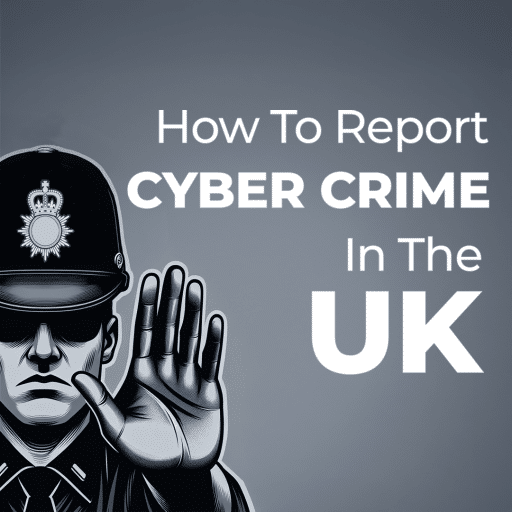Fake job scams nearly tripled in reports from 2020 to 2024. The FTC also reported a fivefold increase in financial losses for victims in the same time-frame(1). It’s clear that scammers are continuing to evolve and modify their tactics. Today, one of the most dangerous scams that you need to watch out for is the job offer scam.
With AI, remote working, and online job boards, it can be difficult to differentiate an authentic job opportunity with a scam. They use the same advertising methods and use spoofing to create convincing websites or emails of legitimate companies. Sometimes scammers will even use trusted job posting websites to lure in unsuspecting users. These cybercriminals hide behind their anonymity to avoid legal consequences and are after one thing –… your money.
If you have been a victim to online job fraud, working with a cybersecurity firm can be a powerful ally to have on your side. Digital Forensics corp., for example, is made up of cybersecurity experts that perform a job offer scam investigation and works to remove the cybercriminal’s anonymity. We can also protect your finances from any further losses and help with identity restoration.
What Are Fake Job Scams?
A job offer scam is when an offer for work is actually intended to deceive people looking for employment. The methods and number of steps in a fake job scam can vary. However, they are typically after money or personal information.
How These Scams Work
Impersonating a fake recruiter or hiring manager, the scammer will post on a job board or email individuals directly. After they receive your application or you respond to their message, they may offer the job immediately or schedule a quick interview via text or email. Rarely do fake recruiters interview using video or phone calls.
The victim will then get the job offer in a short amount of time and a request for personal information like bank details or a social security number for payroll. The perpetrators may also request payment for various reasons. This could be a “training” deposit, essential equipment purchases for the job, a prompt to “return overpayment” or fake checks. When the victim responds with more information regarding the job offer, the impersonator stops responding or will continue to attempt to siphon as much money as possible from the victim.
In some cases, revealing sensitive information in these scams can lead to cyber extortion. Cyber extortion is when a cybercriminal threatens to release your sensitive information publicly if they are not paid a certain amount of money. The constant threats can be extremely stressful to experience. However, paying the perpetrator is never recommended.
Who These Scams Target
Anyone can fall for a job offer scam. However, certain people are more vulnerable to fake job scams in particular. In the modern era, there are many jobs that follow informal hiring procedures and scammers take advantage of this process to target victims. Remote work scams, for example, are widespread because of the surge of people eager to work from home. Here are the main groups of people that are typically targeted in fake job scams.
- Work-from-home seekers. These remote work scams will seem too good to be true. They typically promise high payment for little work and the freedom to make your own schedule.
- Freelancers and gig workers. Scammers will take advantage of the informal freelance environment to scam gig workers. They may ask for a trial period of work only to vanish when it’s time to pay or request personal information for identity theft.
- Students or recent grads. College students and recent grads are inexperienced when it comes to the job market. Scammers prey on this with offers that are too good to be true.
- Immigrants or non-native English speakers. Immigrants can struggle to find a job, especially if English is not their first language. Cybercriminals use remote work scams and others to target immigrants desperate for a job offer.
Red Flags of a Fake Job Offer
Initially, it can be difficult to identify online job fraud. Scammers are sophisticated and spoof legitimate email addresses or create convincing job listings. However, as you contact the impersonator and go through the hiring process, there are red flags you need to pay attention to. Here are the main warning signs you should look out for when looking for a job.
- Poorly written messages, generic titles. Many scammers are from other countries and do not natively speak English. There will be signs of this in their messages to you with misspellings, strange word choices, or bad grammar. They may also use incorrect titles such as “recruiter admin” to describe themselves.
- Pressure to respond quickly. There will typically be a rush to go through the job interview process quickly or skip it entirely. This is a glaring red flag as normal employment processes will take its time over days or weeks.
- No video interviews or real company emails. Many businesses rely on video chatting and phone calls to perform interviews. However, a refusal or avoidance in doing so is a warning sign to take note of. Companies do not interview through email or messages.
- Overuse of encrypted chat apps. Legitimate businesses will not rely on encrypted chats in normal hiring procedures. Jobs that direct a conversation to Telegram, WhatsApp, or Signal is likely a scam.
- Too-good-to-be-true salary or benefits. Like most scams, an offer that is too good to be true is likely not real. Many remote job scams will use an enticing offer to draw in unsuspecting job seekers.
- Upfront payments or requests for ID scans. Any request for an upfront payment or request for personal information immediately after a job offer is a warning sign. It’s typical to share sensitive information or documents with an employer but an immediate request is abnormal. A legitimate organization will also never request payment in the hiring process.
Emotional Manipulation & Psychological Triggers
There are a lot of people looking for employment who are in vulnerable positions in their life. Cybercriminals understand this and play on desperation and hope to target their victims. Scammers tend to create an urgency to skip normal hiring procedures that victims will accept because of a critical need for a job. Using isolation tactics, these cybercriminals emotionally manipulate victims into ignoring any red flags they may have noticed.
Real Consequences of Falling for a Job Scam
Being a victim of online job fraud can cost more than just an employment opportunity. For many victims, it costs serious financial losses and even identity theft. Fake job scams have run rampant in recent years and it’s important to understand the potential consequences for falling for one.
Financial Loss
The FBI’s Crime Complaint Center reported that victims of online job fraud lost three thousand dollars on average(2). Victims often send hundreds or thousands in training deposits in fake job scams. Fraudulent check scams can also leave victims liable for bounced funds. A job scam that turns into cyber extortion can lead to even more losses and psychological distress.
Identity Theft
When it comes to identity theft, perpetrators of online job fraud can cause significant consequences to a victim’s entire family. They can damage your credit, steal your tax return, and cause legal issues if the scammer does anything unlawful with your identity. It’s recommended to report any identity theft to the Federal Trade Commission (FTC) to receive a multi-step recovery plan(3).

Psychological Impact
Depending on your situation, there may be people like your partner or children that are relying on you to get a job. Being a victim of a scam instead can bring on feelings of shame and fear. Many victims postpone reporting the crime to the FTC due to embarrassment.
However, acting immediately after falling victim to a job offer scam and reporting it to the FTC, local law enforcement, or a cybersecurity firm reduces the amount of harm that can be done by the perpetrator. Law enforcement may open their own job offer scam investigation but the timeframe for this can vary.
How Digital Forensics Corp. Investigates Job Scams
Even anonymous job scammers leave a digital trail behind, and Digital Forensics Corp. can leverage the scammer’s digital footprint to follow that trail. Our digital investigators look at IP addresses, metadata extraction, and transaction tracing for clues into the perpetrator’s location around the world and even their identity. We work to give victims of fake job scams leverage over the cybercriminals targeting them.
Digital Forensic Corp. also helps victims of fake job scams prepare for any legal action they want to take. Our digital investigation is admissible as evidence, and we can connect victims to attorneys or law enforcement partners to review your legal options. We also help with identity restoration by working with banks and credit agencies to restore credit scores and remove fraudulent accounts.
What You Can Do If You’ve Been Targeted
What started as a hopeful opportunity to be employed quickly turns into a nightmare. The realization that you have been involved in a fake job scam can be terrifying. There is a lot of personal information that can be exposed and possible losses financially. You need to take steps immediately to protect your finances and identity from further harm.
- Stop communication and take screenshots of all exchanges. Stop communication with the scammer immediately but preserve all correspondence. Preserving evidence is important for any future legal actions or working with cybersecurity experts.
- Do not cash any checks or send money. You should never have to send money to a recruiter or a scammer, even if it leads to cyber extortion. Any check sent by the perpetrator will likely bounce and leave you responsible for covering the expense with the bank.
- Report to job boards, the FTC, and your bank. You should report the scam to the job board where you encountered it. It’s the best way to ensure other job seekers won’t fall for the same scam. Also, report the scam to the FTC and if need be, your bank.
- Contact DFC to begin a job offer scam investigation. Work with Digital Forensic Corp. to protect your personal data and analyze the perpetrator’s digital footprint.
Prevention Tips for Job Seekers
We went over the red flags for fake job scams but cybercriminals continue to improve their methods. Some scammers will hold a video interview without showing their face or will use spoofing to mimic the website of a legitimate company. You may need to use proactive methods to protect yourself while searching for a job, starting with research.
- Research recruiters, check their LinkedIn, company website, and email domain. You can perform your own job offer scam investigation and research the recruiter and company that contacted you. Check the recruiter’s LinkedIn or the company website to verify their position. Email domains are also a sign to look for since a spoof email of a legitimate company will be different from the official email domain.
- Ask for a video interview. Scammers will avoid showing their face. Requesting a video interview greatly reduces the likelihood of the recruiter being fraudulent. It’s also easier to notice red flags in a live conversation rather than messages or email.
- If it feels rushed or secretive, walk away. It’s safer to walk away from a suspicious situation than fall into a possible scam. Trust your instincts if anything seems off.
Final Thoughts: Don’t Let a Scam Derail Your Future
Falling for a fake job scam is nothing to be ashamed of. Cybercriminals use sophisticated methods of emotional manipulation to appear legitimate and deceive those seeking a job. If you have been a victim of a fake job scam, you are not alone. Hundreds of thousands are victims every year and there are steps that you can take to protect yourself. The FTC has valuable resources for victims and cybersecurity firms can open a job offer scam investigation into the incident.
At Digital Forensics Corp., we believe your ambition shouldn’t be used against you. Our team of digital experts regularly helps victims of online fraud take back their control, their identity, and their peace of mind. Contact us today if you want experts to work on your behalf to protect your personal data.
Sources:
- https://www.ftc.gov/news-events/news/press-releases/2025/03/new-ftc-data-show-big-jump-reported-losses-fraud-125-billion-2024
- https://www.ic3.gov/PSA/2020/PSA200121
- https://www.identitytheft.gov/
DISCLAIMER: THIS POST IS FOR INFORMATIONAL PURPOSES ONLY AND IS NOT TO BE CONSIDERED LEGAL ADVICE ON ANY SUBJECT MATTER. DIGITAL FORENSICS CORP. IS NOT A LAWFIRM AND DOES NOT PROVIDE LEGAL ADVICE OR SERVICES. By viewing posts, the reader understands there is no attorney-client relationship, the post should not be used as a substitute for legal advice from a licensed professional attorney, and readers are urged to consult their own legal counsel on any specific legal questions concerning a specific situation.






